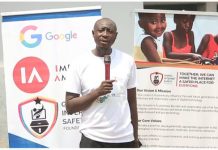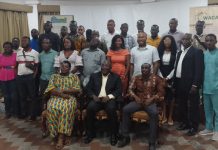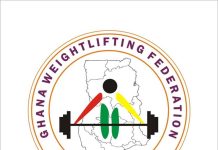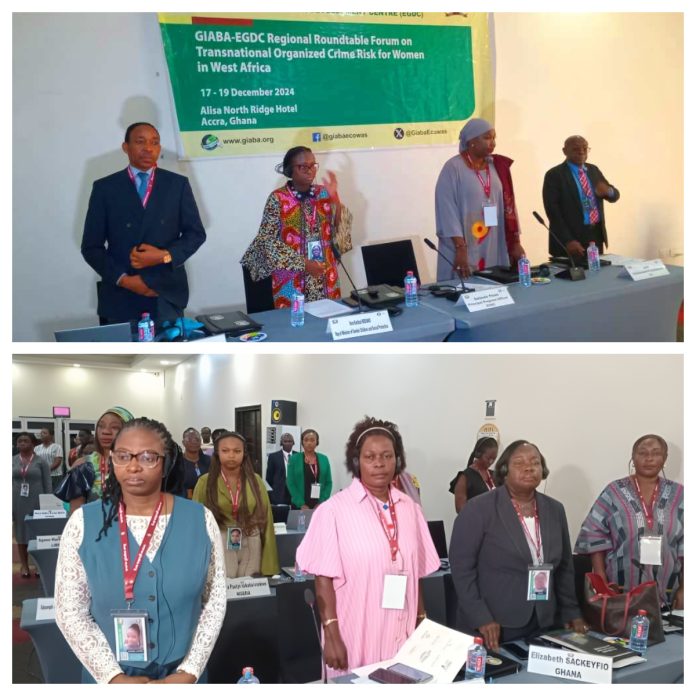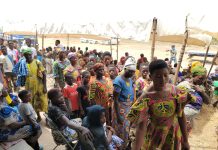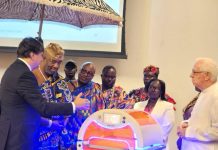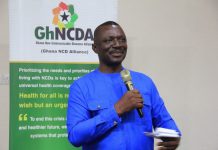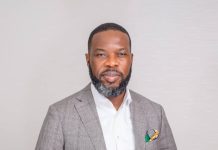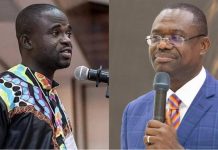Author: GIABA Network Of Journalists
Ghana’s Minister for Gender, Children, and Social Protection, Hon. Dakoa Newman, has called for the integration of gender into policies addressing transnational organized crimes, including money laundering and terrorism financing.
Speaking at the GIABA, ECOWAS Gender Development Centre (EGDC), Regional Women’s Roundtable Forum on Transnational Organized Crime Risks for Women in West Africa, which is being held from December 17-19, 2024, at the Alisa Hotels in Accra, she highlighted the increasing impact of these crimes on women across ECOWAS Member States.
The 3-day workshop, which will climax Thursday 19th December 2024, seeks to raise awareness on the risks faced by women in relation to transnational organized crime, including the impacts of money laundering and terrorism financing.
The workshop has brought together women’s groups, gender advocates and associations, NGOs and civil society organizations from various circles of ECOWAS member countries.
The Inter-Governmental Action Group against Money Laundering in West Africa (GIABA) is a specialized institution of the Economic Community of West African States (ECOWAS) as well as Financial Action Task Force –Styled Regional Body (FSRB) responsible for combating the scourge of Money Laundering (ML) and Terrorist Financing (TF) in West Africa.
GIABA was established by the Authority of Heads of State and Government of the Economic Community of West African States (ECOWAS) in the year 2000 with the mandate to protect the national economies and the financial systems of member States from abuse and the laundering of the proceeds of crimes.
In her opening statement, Hon. Newman underscored the forum’s significance, describing it as a timely platform for decision-makers and stakeholders to align efforts in combating transnational economic crimes while promoting gender equality.
“Transnational organized crime activities such as money laundering, drug trafficking, and terrorist financing are on the rise in West Africa. These crimes disproportionately exacerbate existing vulnerabilities and inequalities faced by women in our societies,” she stated.
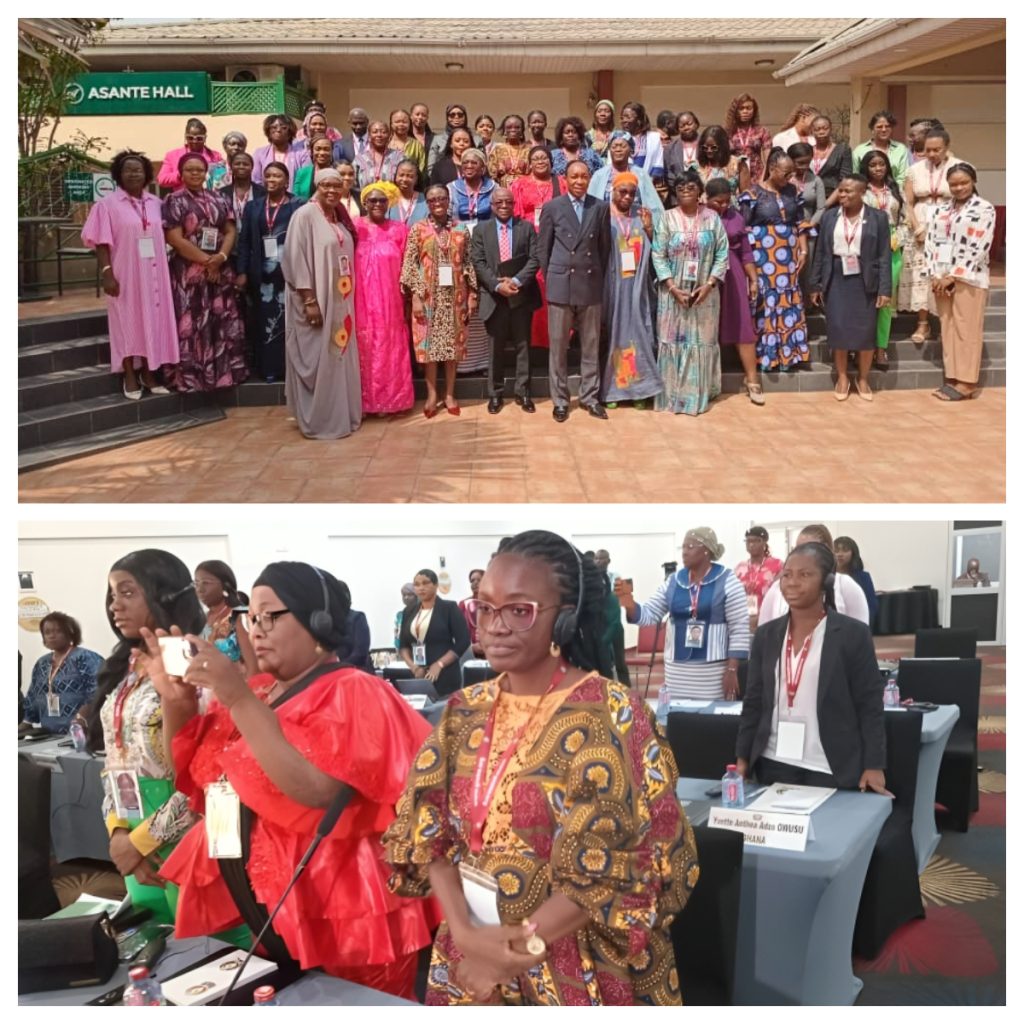
Ghana’s Commitment to Gender Equity
Hon. Newman lauded Ghana’s progress in gender equality, announcing the passage of the Affirmative Action (Gender Equity) Act, 2024 (Act 1121). This landmark legislation aims to address gender imbalances across political, social, economic, and cultural spheres and promote greater gender diversity in leadership roles. She noted that the law aligns with Ghana’s broader efforts to mainstream gender in social protection programs to support vulnerable and marginalized groups.
Women and Financial Crimes
The Minister emphasized the need to recognize women as both potential victims and, at times, active participants in organized financial crimes.
She urged ECOWAS Member States to design targeted programs to protect women and prevent their exploitation in criminal networks.
“Mainstreaming gender into policies and strengthening collaboration between security agencies, financial institutions, youth organizations, and ministries responsible for gender and family welfare are crucial steps in our fight against these crimes,” Hon. Newman advised.
Strengthening Regional Collaboration
Hon. Newman extended her gratitude to ECOWAS and the Inter-Governmental Action Group Against Money Laundering in West Africa (GIABIA) for their dedication to addressing transnational organized crime risks.
She expressed optimism that the forum would result in actionable strategies to protect women and girls across the subregion.
As she concluded her speech, Hon. Newman reaffirmed Ghana’s commitment to fostering a more inclusive and equitable society. She encouraged participants to engage actively in the deliberations and to explore Ghana’s vibrant culture and tourist attractions.
The forum, which brings together policymakers, civil society organizations, and development partners, is expected to build consensus on integrating women’s perspectives into regional strategies for combating economic and financial crimes.
On his part, Dr Jeffrey ISIMA, who addressed the forum on behalf of the Director-General of GIABA, Mr. Edwin W. Harris, lamented that despite measures put in place to combat money laundering and terrorist financing, the menace keeps booming with criminals developing more sophisticated methods to outwit the systems.
He mentioned that Sub-Saharan Africa stands out as the region with the highest money laundering risk.
Dr. ISIMA also disclosed that in 2023, the estimated amount of money laundered annually was almost 5% of the global GDP, or $800 billion; and it is projected that up to $5.05 trillion will be laundered globally in 2024.
“This figure is larger than the GDP of all but a handful of countries and represents correspondingly huge risks to global financial stability and to the financial well-being and stability of many countries.
At least $300 billion is laundered every year in the US; Over £100 billion is annually laundered in the UK; About €100 billion is laundered in Germany each year; In 2022, Russians had about $1 trillion of dark money, hidden abroad. The US State Department estimates that $154 billion is laundered in China.”
Taking his turn to speak, Mr. Kwaku Dua, the GIABA National Correspondent for Ghana and the Chief Executive Officer of the Financial Intelligence Centre (FIC)said Ghana remains committed to combating organized crime, with a focus on empowering women in the fight against money laundering and terrorist financing.
Mr. Dua further expressed Ghana’s dedication to creating an unfavorable environment for transnational organized crime:
“It is an honor to be part of this important program, which is dedicated to empowering women against organized crime. Ghana has consistently strengthened its legal frameworks and institutions to combat these crimes, particularly those affecting vulnerable groups such as women and children.”
Focus on Gender and Transnational Crime
Mr. Dua highlighted the critical role women play in both the fight against and the impacts of organized crime. He acknowledged the dual reality: while women are often victims of crimes like human trafficking, there is growing evidence of their involvement in orchestrating some criminal activities.
“This workshop is timely, as these crimes continue to impede economic growth and violate human rights. I hope that discussions will explore strategies to address these vulnerabilities and share best practices to curb transnational organized crime in our region,” he added.
The workshop aligns with the protocols of the United Nations Convention against Transnational Organized Crime (UNTOC), which Ghana ratified to combat human trafficking, smuggling, and illicit trade in firearms. Mr. Dua stressed that these frameworks are essential to protecting human rights and reducing vulnerabilities that benefit criminal networks.
Key Strategies and Collaborative Efforts
Mr. Dua called for gender-sensitive laws and the prioritization of anti-money laundering and counter-financing of terrorism measures.
He emphasized the importance of collaboration among stakeholders, including law enforcement agencies, civil society organizations, and regional and international bodies.
“Our discussions must focus on gender-based laws and deepening collaborative efforts. It is only through such collective actions that we can achieve significant progress in the fight against transnational organized crime,” he noted.
The FIC boss also underscored Ghana’s commitment to consistently implementing effective, proportionate, and restrictive measures to combat crime.
A Milestone for West Africa
The workshop, which concludes on December 19, is expected to generate actionable strategies for reducing the prevalence of money laundering, human trafficking, and terrorist financing in the region. Participants will also explore ways to protect the rights of smuggled migrants and empower women to take an active role in combating these crimes.
As the workshop unfolds, Ghana’s leadership and the collective efforts of ECOWAS member states highlight the growing recognition of women’s pivotal role in tackling organized crime and promoting regional stability.

